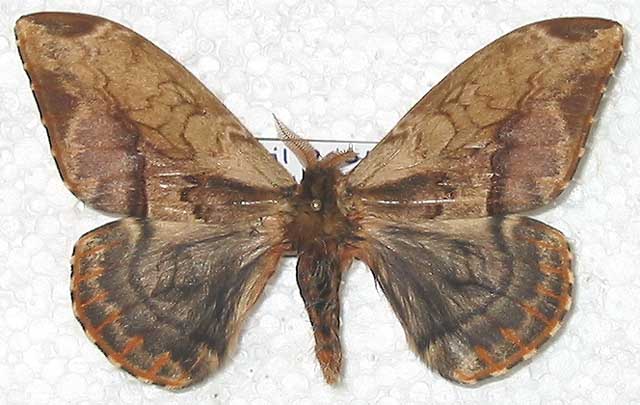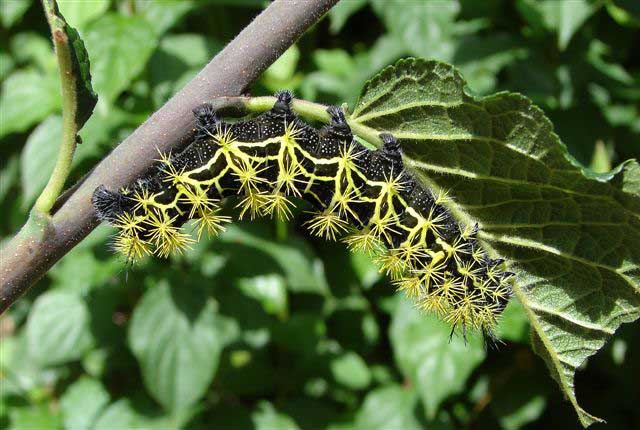Molippa kohlli
muh-LIP-puhmmKOHL-eye
Luigi Racheli, 2008

Molippa kohlli Peru: Puno: Aquele, courtesy of Bernhard Wenczel.
TAXONOMY:Superfamily: Bombycoidea, Latreille, 1802 |
ChiquititaON.OFF |
|
|
Updated as per
Updated as per SHILAP Revta. Lepid., 36(141), marzo 2008: 73-76, (kohlli) by Luigi Racheli, courtesy
of Bernhard Wenczel, May 2008.
|

TAXONOMY:Superfamily: Bombycoidea, Latreille, 1802 |
ChiquititaON.OFF |
Bernhard Wenczel indicates the moth is common at this location, and both males and females are taken at lights by Jose Boettger.
Visit Peru: Molippa Chart.
Larvae will feed on willows and prunes: Salix caprea, Salix helvetica, Prunus (BW).

Molippa kohlli, fifth instar courtesy of Bernhard Wenczel.
Prunus |
Prune |
Return to Molippa Genus
Return to South American Saturniidae Direcotry
Return to Main WLSS Index